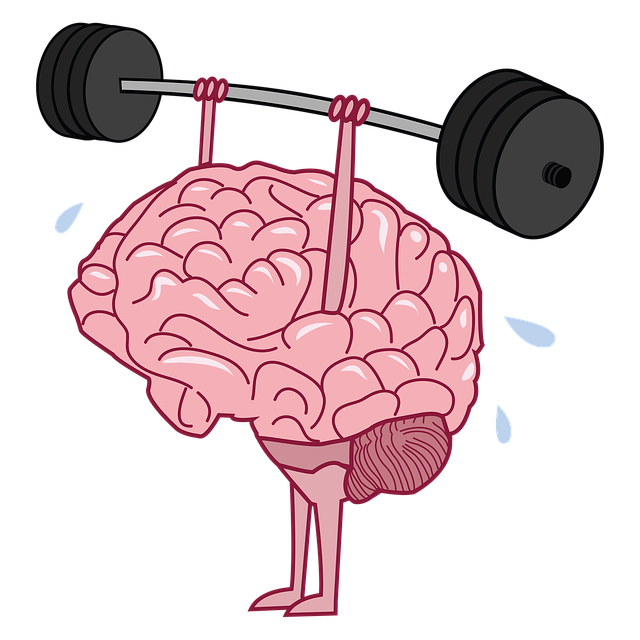Lakewood Dissociative Disorder Therapy leverages RFM (Resilience, Flexibility, Mastery) strategies to empower individuals with dissociative disorders. Through tailored exercises focusing on resilience and self-awareness, therapists teach coping skills for trauma management and emotional regulation. This approach promotes flexibility in thinking and behavior, fosters mental wellness, enhances social skills, and enables patients to control their reactions, ultimately improving overall well-being and self-stability. Empathy-building and self-awareness exercises strengthen the therapeutic bond and reduce mental illness stigma within a supportive community outreach program.
“Explore the transformative power of RFM (Resilience, Flexibility, and Mastery) in Lakewood dissociative disorder therapy. This article delves into the role of RFM as a crucial tool for managing symptoms and enhancing resilience. We examine its impact on clients through practical case studies from Lakewood-based therapists. Additionally, we provide a comprehensive guide to implementing RFM strategies, offering valuable insights for healthcare professionals aiming to improve patient outcomes in dissociative disorder therapy.”
- Understanding RFM and Its Role in Dissociative Disorder Therapy
- The Impact of Resilience-Building Exercises on Lakewood Clients
- Implementing RFM Strategies: A Practical Guide for Therapists
Understanding RFM and Its Role in Dissociative Disorder Therapy

Understanding RFM (Resilience, Flexibility, and Mastery) is key to effective Lakewood Dissociative Disorder Therapy. This approach recognizes that individuals with dissociative disorders often struggle with managing traumatic memories and maintaining a sense of self. By focusing on resilience, therapists help clients develop coping skills to navigate emotional challenges. RFM strategies encourage flexibility in thinking and behavior, allowing individuals to adapt to stressful situations without triggering dissociation.
In Lakewood Dissociative Disorder Therapy, RFM exercises are tailored to foster mental wellness and promote social skills training. These techniques empower patients to take control of their reactions, enhancing their ability to cope with traumatic reminders. Through consistent practice, clients build mastery over their emotional responses, leading to improved overall well-being and a more stable sense of self.
The Impact of Resilience-Building Exercises on Lakewood Clients

Resilience-building exercises have proven to be transformative for clients dealing with dissociative disorders in Lakewood. These therapeutic interventions focus on equipping individuals with coping mechanisms to navigate traumatic experiences and emotional distress. Through various activities, clients learn to manage their moods, regulate emotions, and build a sense of control over their lives. The positive impact extends beyond the therapy session; improved mental wellness becomes integral to their daily routines, fostering a more stable and balanced mindset.
The Community Outreach Program Implementation plays a crucial role in this process, offering support systems and resources that enhance the overall well-being of Lakewood clients. By participating in these exercises, individuals gain invaluable skills for stress management, which is essential for maintaining mental health. This holistic approach to therapy ensures that clients not only overcome dissociation but also develop long-lasting strategies for a fulfilling life, addressing the core aspects of their recovery journey and promoting resilience.
Implementing RFM Strategies: A Practical Guide for Therapists

Implementing RFM (Resilience, Flexibility, and Mastery) strategies is a powerful approach for therapists seeking to support clients with dissociative disorders in Lakewood. These evidence-based techniques are designed to enhance resilience, promote self-awareness, and foster adaptive coping mechanisms. By integrating RFM into therapy sessions, professionals can guide their clients towards better managing symptoms associated with dissociative conditions.
One effective strategy is incorporating empathy-building exercises to strengthen the therapeutic alliance. Encouraging open dialogue and active listening helps clients feel understood, fostering a safe environment for sharing traumatic experiences. Additionally, self-awareness exercises can be tailored to help individuals recognize and accept their emotions, thoughts, and behaviors without judgment. This process contributes to mental illness stigma reduction efforts by promoting empathy and understanding within the therapeutic context.
Resilience is a powerful tool in the journey towards healing from dissociative disorders, and the RFM (Resource, Strengths, and Mastery) model offers therapists a structured approach to empower clients. As seen through the success of resilience-building exercises in Lakewood Dissociative Disorder Therapy, fostering resourcefulness, enhancing strengths, and promoting mastery can significantly improve clients’ coping mechanisms and overall well-being. By implementing RFM strategies, therapists can provide effective and tailored support, enabling individuals to navigate their dissociative experiences with greater resilience and a renewed sense of control.














